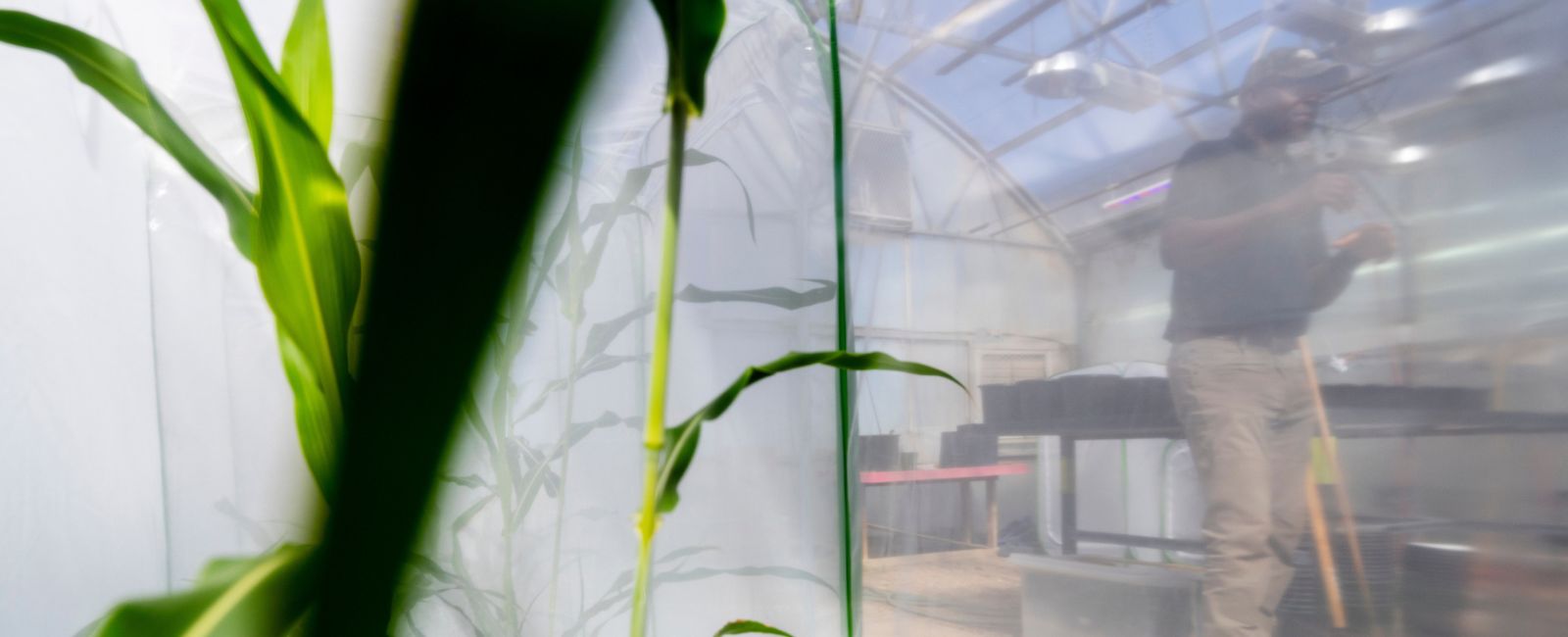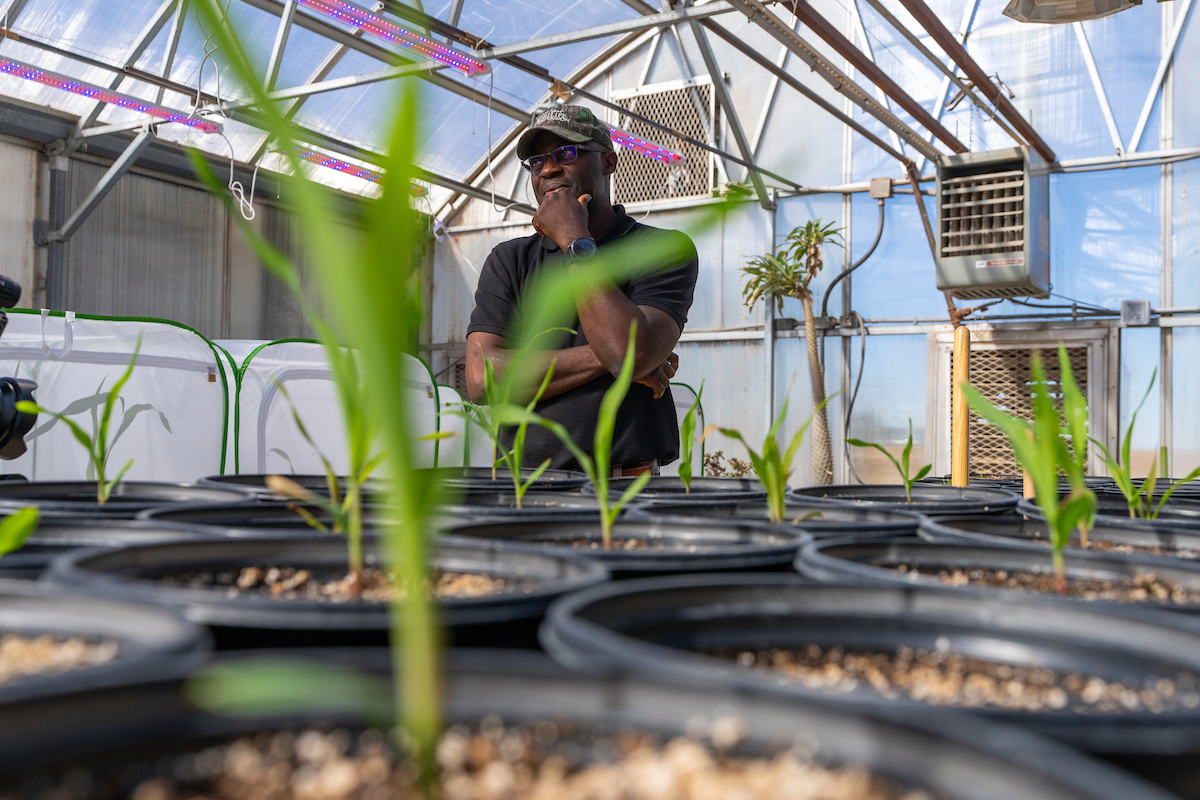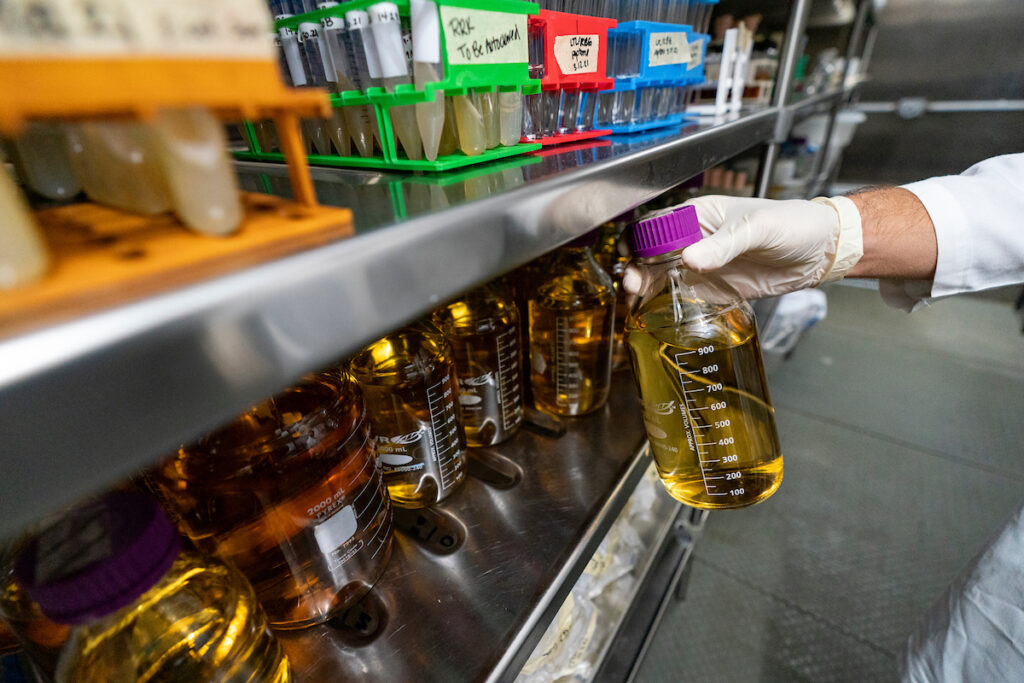
Submit a Sample to THPPDD
Disease Diagnostics and Plant and Insect Identification
Submitting a Sample
Become a customer of the Texas A&M AgriLife High Plains Pland Disease Diagnostic Lab
Anyone who submits a sample for testing at the THPPDD Lab must first become a customer of Texas A&M AgriLife by filling out a customer information form.
Collecting, Packing and Mailing Your Sample
Collecting
- Collect only fresh specimens that show a progression of symptoms. Try NOT to send dead plants. Keep the specimens refrigerated after collection until they are submitted. DO NOT ADD WATER or pack the specimen with a wet paper towel. Keep sample(s) out of direct sunlight and/or heat.
- If you suspect a root‐related problem like Cotton Root Rot or Phytopthora Root Rot, please provide a root sample.
- For plants showing wilting, yellowing, stunting, or general decline, send the entire plant, including the root system. If possible, isolate the roots from the foliage when packaging.
- If you are submitting more than one sample, please clearly label the outside of each bag with a permanent marker.
- For virus testing, collect symptomatic leaves, stems, or whole plants with roots (ideal) and place them in a plastic resealable bag. If the roots are wet, wrap them in a dry paper towel. Add dry paper towels around leaves to absorb any moisture generated.
- For seed testing, collect and submit 300‐500 seeds (200 randomly selected seeds will be tested) in a clean and dry paper envelope or plastic resealable bag. For cereals, dried harvested heads can be submitted with or without the glumes attached.
Packing
Complete the correct diagnostic form for your sample:
General diagnosis form
Wheat viruses, seed testing for black chaff, mycotoxin testing, GMO testing
Psyllids Testing Form
Hemp Disease Diagnosis form
Ensure the identification on the form matches the labels on the sample bags. Keep the form in a separate plastic bag from the specimen. Limit 1 sample per form. Please include recent pesticide history (last 3 weeks), soil testing results, and any other pertinent information.
Package all specimens securely to prevent damage during transit. To prevent crushing use cardboard boxes and add packing material such as newspaper to prevent specimen damage during shipment.
Mailing or Hand-delivering
Mail your samples by overnight delivery early in the week to ensure arrival before Thursday afternoon. If left over the weekend in a delivery warehouse, samples can decompose. Alternatively, consider delivering your samples in person.
Send or bring samples:
Texas High Plains Plant Disease Diagnostic Laboratory
Texas A&M AgriLife Research and Extension Center
6500 Amarillo Blvd. W.
Amarillo, TX 79106
THPPDD Lab Policy
- All submitted samples must be of adequate quality and quantity, and each must be accompanied by a complete diagnostic form. The quality of the diagnosis depends on the quality of the submitted sample.
- Inadequate or poor samples will be processed with the option for clients to resubmit. Resubmitted samples will not incur additional charges unless a new test is required for an accurate diagnosis.
- A base fee of $50 will be assessed to process each submitted sample and deliver a report that outlines test results and recommendations. Additional testing will incur additional fees.
- No refunds will be made.
- Reports that include results and recommendations will be emailed or mailed to the clients named in the submission forms. If unspecified, the payee of services will receive the report.
- All sample specimens will be disposed of appropriately once the analysis is complete.

THPPDD Services and Fees
View a full listing of the services offered by the THPPDD lab

